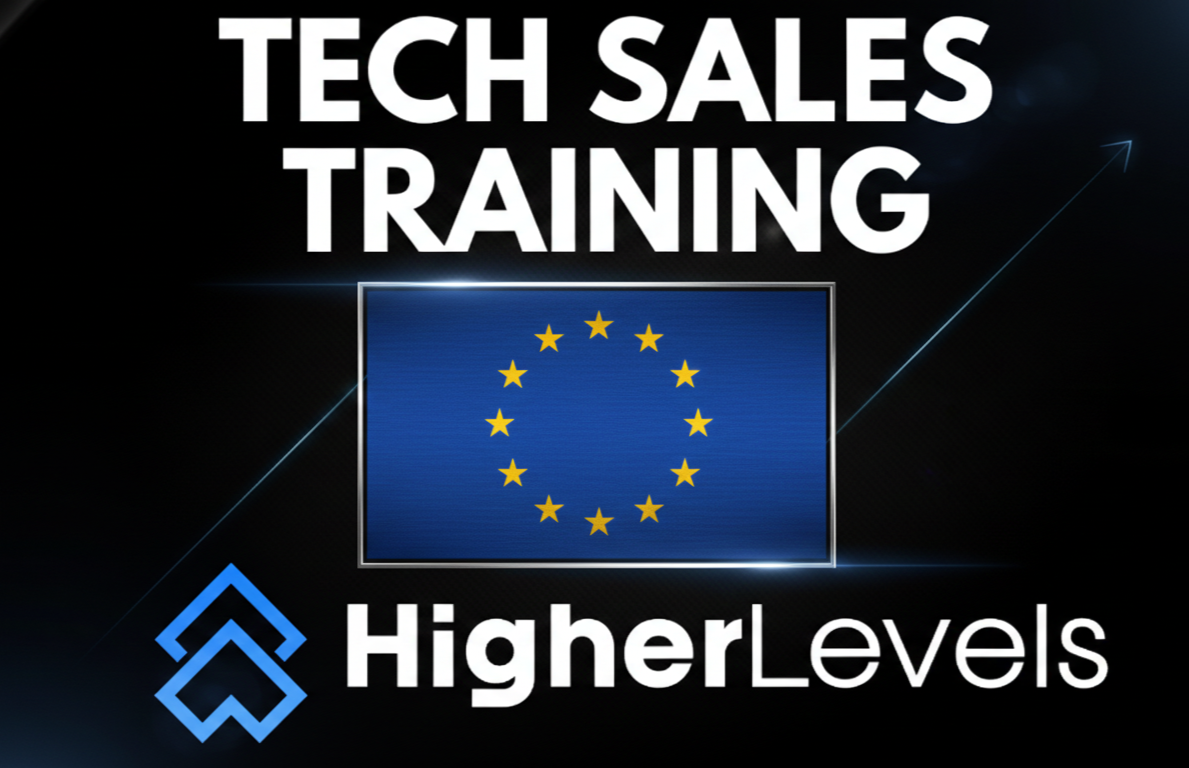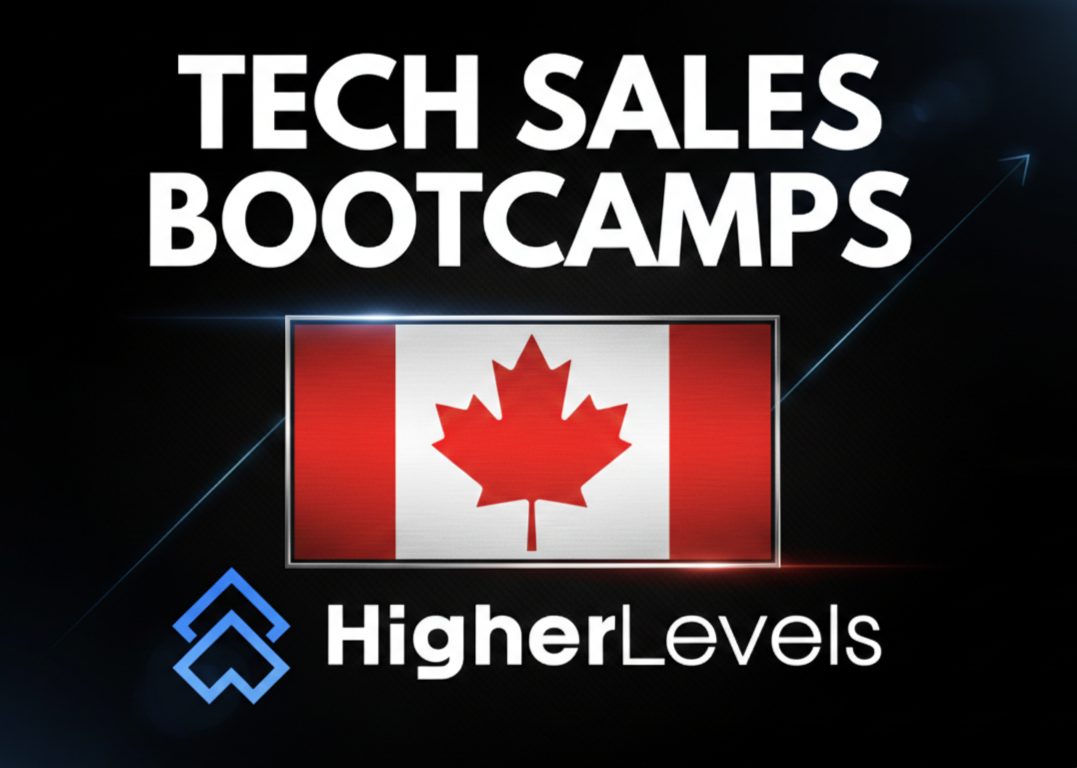How to Prepare for Every Round of the Tech Sales Interview Process
This guide walks you through exactly how to prepare for every round of the tech sales interview process, with specific tips for recruiter screens, manager interviews, sales exercises, and final presentations.
.png)

INTRO
Most people put everything they have into landing interviews. Then the moment they finally get one, they freeze.
They Google last-minute interview tips. They scroll LinkedIn for clues. And they show up underprepared for the one opportunity they worked so hard to create.
If that’s you, it’s not your fault. Most content about tech sales skips this part. It talks about how to optimize your resume or get noticed by recruiters, but not how to actually show up and win the job.
This guide fixes that. I’m going to walk you through every round of the tech sales interview process. You’ll know what to expect, what hiring managers care about, and how to avoid the common mistakes that disqualify good candidates.
Whether you’re brand new to sales or switching careers, this is the blueprint.
WHAT YOU’LL LEARN
- What each interview round is really testing
- How to prepare when you don’t have sales experience
- Why strong communication matters more than your background
- What most candidates overlook that costs them the offer
ROUND 1: THE RECRUITER SCREEN
This first call is usually with someone in HR or a recruiter. It’s not meant to trip you up. They’re checking for basic professionalism, clear communication, and genuine interest in the role.
Here’s the mistake most candidates make: they treat it like a final round. They come in trying to prove how smart they are or how hard they’ve been working. That’s unnecessary.
What recruiters are really looking for:
- Can you speak clearly and confidently?
- Do you seem genuinely interested in the company, not just any job?
- Do you understand what this role is and why you’re a fit?
Here’s what makes a strong impression:
- Be calm, professional, and easy to talk to.
- Have a specific reason for applying to their company.
- Mention something they haven’t heard from every other candidate.
While they may have a few more follow up or additional questions, almost every first round interview follows a similar format:
- Tell me about yourself
- Why do you want to work in sales?
- Why do you want to work at [COMPANY NAME]?
If you can't answer those questions, don't even worry about preparing for anything else.
ROUND 2: THE SALES MANAGER INTERVIEW
Now the stakes go up. This is the person who could become your manager. Their job is to figure out if you can actually do the work, and if they’d want you on their team.
Expect questions about your background, your mindset, and how you handle adversity.
Common questions:
- Why tech sales?
- Why this company?
- Tell me about a time you faced a challenge and how you handled it.
- What do you know about our product and customers?
This round is where clarity and preparation matter. Rambling will hurt you. So will overly rehearsed answers that feel robotic.
- Write out your core stories and trim them down to 60–90 seconds each.
- Practice speaking them out loud, not just in your head.
- Research the company in depth so you can speak to their mission, team, and product.
Also, this is your first real opportunity to demonstrate sales instincts. You need to close the call.
Simple close:
“I’ve really enjoyed this conversation. Based on what you’ve shared, I feel like this is a great fit. Would anything prevent you from feeling comfortable moving me forward to the next round?”
If you skip this step, you’re signaling that you don’t know how to move a deal forward. And in sales, that matters.
ROUND 3: THE SALES TASK OR CULTURE INTERVIEW
This round usually takes one of two forms.
Option 1: A live or written sales task.
You might be asked to:
- Write a cold email based on a sample LinkedIn profile.
- Create a short pitch for the company’s product.
- Run a mock cold call with a hiring manager.
They will often give you a short brief or some light guidance. You are not expected to be a seasoned rep. What they care about is whether you took the assignment seriously and made a clear, thoughtful attempt.
How to stand out:
- Understand the persona. Who are you reaching out to? What do they care about?
- Tie the company’s product to a real pain point. Don’t pitch features—pitch problems and business outcomes.
- Keep it conversational. Avoid buzzwords or over-complicated copy.
Option 2: A peer or leadership conversation.
You may be introduced to someone on the team or a VP. This is usually more of a culture screen. They want to get a sense of how you show up when there’s no formal structure.
How to approach it:
- Be curious and engaged. Ask smart questions about their experience before your instinct to 'sell yourself'.
- Don’t over-explain your resume. Focus on building rapport.
- Show that you’d be someone they’d enjoy working with.
Pending the VPs temperament, you don’t necessarily have to be the candidate who’s “on” the whole time if the VP is relaxed. However, just know that some VPs run a very tight ship. The best way to prepare is to prepare as if it will be your toughest interview, and if the VP is more relaxed, then you can match their energy level.
FINAL ROUND: THE PANEL OR PRESENTATION
This is the round that gets you the offer—or doesn’t.
At this point, you’re being compared against a few finalists. Everyone who made it this far is technically qualified. What separates the winner is preparation, presence, and performance under pressure.
Common formats:
- A panel interview with leaders across the org.
- A live or recorded product presentation.
- A mock cold call or mock discovery call with objection handling.
- An email sequence or outreach strategy based on a persona and company brief.
You’re expected to understand the company’s product well enough to speak intelligently about it, even if you’ve never sold it.
Here’s what makes the difference:
- Don’t try to wing it. Even if you’re great at talking off the cuff, this round requires real prep.
- Don’t rely on product memorization alone. You’re not being graded on trivia. You’re being evaluated on how well you communicate and lead a conversation.
- Use your research to speak to the customer’s world. What problem are they trying to solve? Why would your product even matter to them?
- Don't be shy to watch credible videos to help you prep and use tools like ChatGPT to quickly learn about the technology, customers, and their pain points.
Hiring managers want to see that you can think like a seller, not just recite slides.
If you're good at talking but don’t understand anything about the product, they’ll see through it. If you're more technical but lack conversational flow, they'll hesitate to put you in front of customers.
The winning candidate finds the middle ground. You can't know everything about the product, but if you can navigate conversations where you don't know the answer, and use that to ask clarifying questions like "Tell me more about why that is important to you", you 'll demonstrate your ability to handle the unknowns of a customer facing sales role.
FINAL TOUCHPOINTS: THE CEO OR FOLLOW-UP CALL
Some companies add one last call with a CEO, founder, or senior leader before making the offer. Don’t let your guard down here.
It may feel like a formality, but sometimes this is the deciding vote.
Keep your energy up. Restate your interest. Treat it like another interview, not a casual wrap-up.
COMMON MISTAKES TO AVOID
- Skipping the close: If you don’t ask about next steps, you miss a key signal of sales readiness.
- Over-relying on background: Your resume might get you in the door. It won’t get you the offer.
- Rambling under pressure: Clarity matters more than charm. If you can’t get to the point, you’re not ready for the phone.
- Practicing with people who can’t give feedback: Don’t do mock interviews with someone who’s afraid to hurt your feelings. You need honest feedback from people who understand sales.
- Thinking nerves go away magically: They don’t. But when you’ve prepped deeply, your confidence takes over.
FAQ
Q: How many rounds are typical in a tech sales interview?
A: Most companies have four to five rounds. These usually include a recruiter screen, hiring manager interview, a sales task or mock call, and a final presentation or panel.
Q: Do I need sales experience to pass these interviews?
A: No. What matters more is how well you prepare, how clearly you communicate, and whether you can learn fast.
Q: Do I have to close every round?
A: Yes. You don’t need to be aggressive. But you should always confirm interest and ask about next steps.
Q: What if I’m nervous or not naturally extroverted?
A: That’s normal. Tech sales is about consistency and clarity, not being the loudest person in the room. Preparation is what helps you overcome nerves.
SOCIAL PROOF
This entire article is not just based on my own experience or opinion. I've coached over 6,000 reps in tech sales and helped thousands break in to the best companies in the world.
One student that exemplifies what we discuss in this article is Griffin, who transitioned from a 7 year career as a personal trainer to a top tech company (Monte Carlo):
“Higher Levels gave me the exact wording, structure, and story I needed to stand out. From interview prep to cold email templates and follow-up strategies, every detail was covered. I even built out a full interview project with follow-ups and explanations to show I was the top candidate—and it worked. Higher Levels didn’t just prepare me—they helped me dominate every stage of the process."
You can see his full story here.
If you're ready to break into tech sales and want expert guidance through every stage of the interview process, join Tech Sales Ascension or check out our free community to learn more.
It’s the largest and most effective tech sales bootcamp in the world. Our program has helped hundreds of people land SDR roles at companies like AWS, Snowflake, Databricks, Salesforce, Deel, Zoominfo, Rippling, Oracle and many more. You’ll get detailed interview prep, hands-on coaching, and a roadmap that actually works.
TL;DR
- The interview process has four or five stages. Each one tests different skills.
- Most people fail because they underprepare and hope to wing it.
- Strong communication, specific research, and structured answers win offers.
- Your background matters less than how you show up under pressure.
- Close every round and always prepare like it’s game day.
.svg)
.svg)
.svg)
.svg)
.svg)
.svg)

.png)



.svg)








